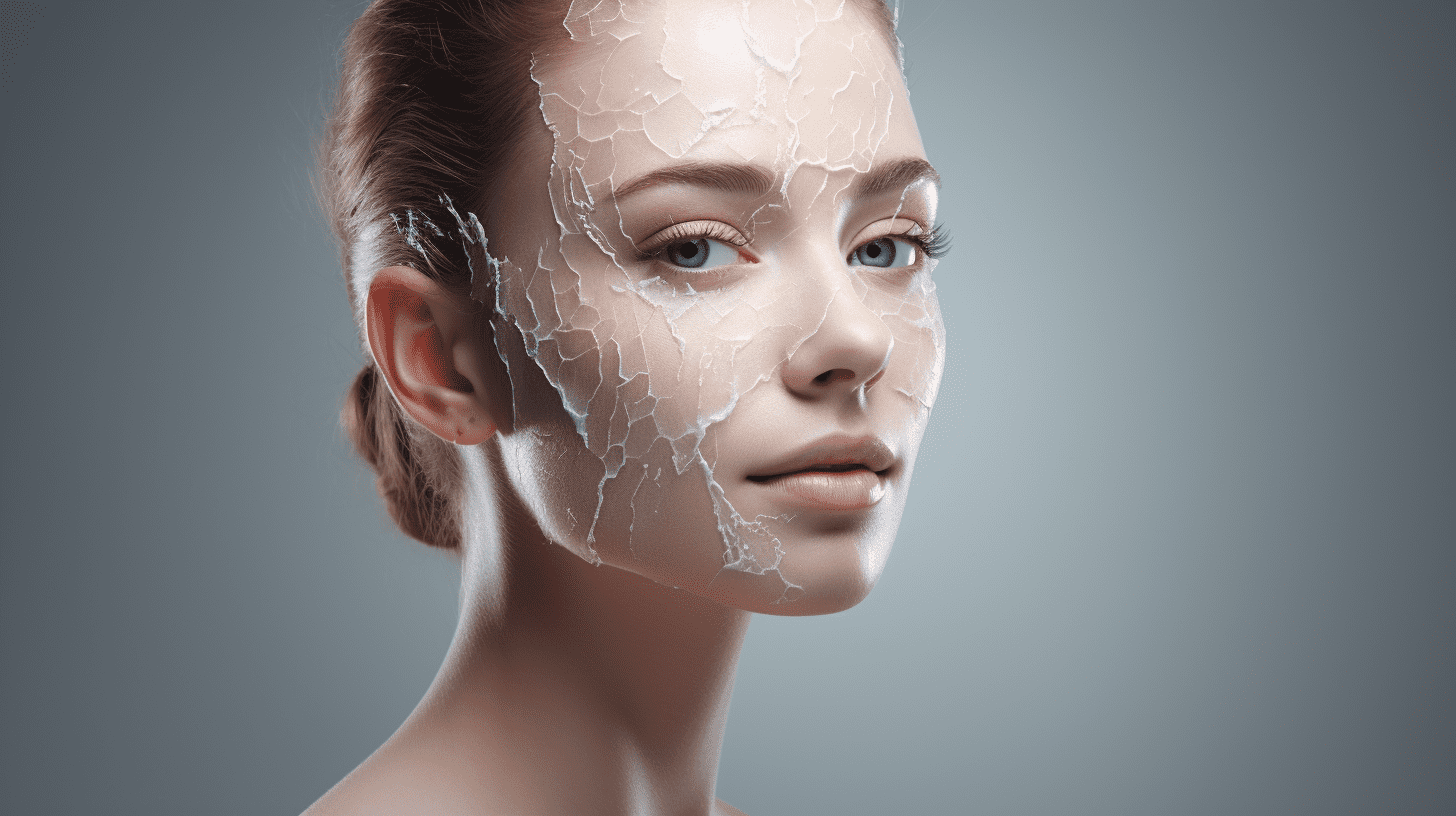Are you tirelessly moisturizing your entire body, yet the layers of body cream seem insufficient to satisfy your persistently dry skin? It might be time to investigate alternative causes beyond the obvious. While it’s expected for skin to become parched during the harsh winter months due to external elements, such as chilly temperatures and indoor heating, there are less apparent reasons that can lead to sandpaper-like skin texture. Interestingly, dry skin doesn’t discriminate based on weather conditions; it can make its presence felt even during the deep summer months when we’d expect a different story.
The summer season can surprisingly bring about dry skin due to hot weather and high humidity levels, both of which lead to increased water loss from the body, ultimately causing skin dehydration. While weather can be a contributing factor, it’s essential not to overlook the more significant causes of sudden skin thirst, such as an impaired skin barrier or a deficiency in omega fatty acids within our diet. These factors can transcend seasons and impact our skin year-round.

Recognizing the Signs of Dry Skin:
When dryness sets in, it can lead to a variety of uncomfortable symptoms. Beyond the evident dull and dry appearance, the presence of flakes, rough patches, and even cracks that resemble a snake shedding its skin are clear indicators of dry skin. If you find yourself constantly itching, this too is a telltale sign of your skin’s lack of hydration. Furthermore, your skin might take on a painful sensation upon touch and appear less elastic, resembling a piece of parchment paper. If you reach this stage, it’s advisable to consult a dermatologist, as these symptoms might be indicative of more severe conditions.
Unveiling the Common Culprits Behind Dry Skin:
- Weather Conditions: The conventional understanding is that cold winter air and low humidity contribute to dry skin. However, this is not limited to the winter months alone. Dry conditions during summer or exposure to inadequately ventilated spaces can trigger skin dryness as well.
- Excessive Hot Showers: While the allure of a steaming hot shower is hard to resist, it’s important to note that prolonged exposure to hot water, combined with body soap, can strip away the skin’s natural protective barriers. Lowering the temperature of showers and baths, using oil-infused water, and moisturizing post-shower are advisable steps.
- Inadequate Room Moisture: Central heating in winter and fans during warmer temperatures can deplete the skin’s moisture. Introducing bowls of water near radiators or using a humidifier can restore some moisture balance, particularly important in bedrooms where we spend hours asleep.
- Dietary Deficiencies: The absence of fruits and vegetables in your diet can adversely affect your skin’s health. Nutrients like vitamin C, vital for collagen production, are essential to maintaining plump, hydrated skin.
- Caffeine and Alcohol Consumption: Caffeine’s diuretic nature and alcohol’s dehydration effects can lead to increased fluid loss from the body, leaving the skin dry and parched.
- Insufficient Hydration: The simple act of not drinking enough water can drastically impact skin health. Consuming an adequate amount of water (approximately 2-3 liters per day) is crucial for hydration.
- Misuse of Moisturizers: Using heavy moisturizers excessively can compromise the skin’s self-regulation and natural hydration process. Balancing the use of moisturizers and allowing the skin to self-regulate is important for maintaining its youthful appearance.
- Incorrect Application of Hyaluronic Acid: While hyaluronic acid is a powerful hydrating ingredient, applying it to dry skin in low-humidity environments can potentially worsen dryness. Creating a moisture sandwich with face mist, hyaluronic acid serum, and a ceramide moisturizer can effectively lock in hydration.
- Neglecting SPF: UV rays, aside from their well-known risks, can also dehydrate the skin. Choosing a cream-based sunscreen with hydrating ingredients helps protect and restore moisture.
- Acne Treatments and Retinol Use: Certain skincare products like salicylic acid and retinol, while effective, can cause dryness and flakiness due to their exfoliating and oil-reducing properties. Careful use and proper moisturization are key.

Note: For an in-depth understanding of the causes of dry skin, the full article provides a comprehensive breakdown.
In conclusion, dry skin stems from an interplay of various factors, some of which might be surprising. By recognizing these triggers and adopting effective strategies to combat dryness, you can restore your skin’s natural moisture balance. Whether it’s modifying your skincare routine, adjusting dietary habits, or being mindful of external conditions, a comprehensive approach is essential for achieving and maintaining hydrated, healthy skin.
[Sources:
- Dr. Michael Barnish, Medical Director for REVIV UK.
- Dr. Rekha Tailor, Medical Director of the Health & Aesthetics Clinic.
- Dr. Sophie Shotter, Aesthetic Doctor.
- Charlotte Vøhtz, Founder of Green People.
- Dr. Marilyn Glenville, Leading Nutritionist and Author.
- Dr. Catherine Carney, Private Addiction Rehab Clinic, Delamere.
- Rick Woodin, Lead Dermatologist at ZO Skinhealth.
- Debbie Thomas, Skin and Laser Expert.
- Dr. Ana Mansouri, Aesthetic Doctor and Skin Expert.
- Dora Walsh, Registered Nutritionist at BANT.
- Paula Begoun, Skincare Expert.]

















